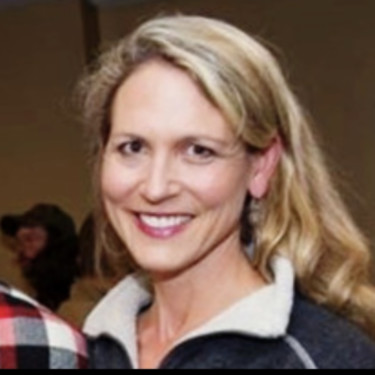In my final year of family medicine residency, my classmates and I met with the chair of our department to hear his thoughts about being successful in medical leadership. Several of his suggestions have stood the test of time, including: ‘whenever possible, work standing up,’ and ‘try to touch documents and emails only once, in order to keep processes moving forward.’ The underlying message was one of responsiveness and efficiency. This approach clearly served our department chair well, as he would go on to become one of the first CMOs in Maine, and an early champion of clinical integration and quality in the state’s largest health care organization. From him, I learned that it is crucial that clinicians not only practice, but lead — so that we can build the health care ecosystems we want to see.
Each individual’s leadership journey is unique, and the skills we develop are highly dependent upon the contexts from which we emerge. As the oldest of 10 children, I’d assumed a de facto leadership role beginning in childhood. I subsequently became more intentional about leadership over the course of my education and professional life. From the time I was in medical school and throughout my family medicine residency program, I accepted peer governance roles and participated on the boards of local medical and specialty associations. I understood the importance of being a conscious participant in the future of medicine.
Several months into residency, however, I began to grow uncomfortable with the direction that health care was taking. My colleagues and I were seeing more complicated patients in shorter office visits, relying on remedies that were inadequate to address their needs. In the absence of the time needed to discuss lengthier topics such as food, activity, and other lifestyle choices, we were prescribing more medication and ordering more tests. Our shift to this model coincided with a growing sense of dissatisfaction among practitioners.
I became intrigued by modalities that would have a longer term impact on patient well-being. While we were being taught to use opiates and high dose anti-inflammatory medications to address pain, I was more aligned with clinicians who used physical therapy, acupuncture and osteopathic manipulative medicine for this purpose. Their focus on wellness, both for their patients and for themselves, seemed like a more tenable approach to the practice of medicine. This led me to consider leadership differently. I wanted to enhance patient and practitioner well-being at the same time — even if it meant leading from the outside and starting my own practice.
Following residency and additional training in preventive medicine and public health, I sought to lead by example. I spent 10 years building a solo private practice, incorporating acupuncture and lifestyle-oriented modalities into patient visits. I personally dealt with everything from staffing and patient communication to computer glitches. In doing so, I learned valuable lessons about medicine and leadership that are likely relevant to all clinicians, regardless of where and how they practice.
1) Share responsibilities across the team.
Within my practice I made my own choices about how I spent my time. Every choice I made had an impact on the patients and staff in our small health care ecosystem. Because we approached patient care as a team, the others who worked in my office were familiar with what our patients needed, and regularly offered solutions from within their own scope of practice. Our patients knew that someone on staff would always be available to them. This caused them to reach out to me less frequently, and enabled us to be more efficient with the time we spent together, while still maintaining the trust necessary for a good patient-practitioner relationship. It also gave our team members the opportunity to act at the highest levels of their licensure and remain professionally fulfilled. Sharing responsibilities in this manner can be a great way for clinician leaders to maximize resources and empower staff.
2) Get to know your patients’ interests and what they value.
One benefit of leading my own practice was deciding when and how I was paid for my work. For a small number of patients, I was able to offer a bartering arrangement. At the end of many pleasant visits treating one patient for joint pain, during which I learned about her life as a small business owner and her love of the Maine lake near which she lived, the patient pulled a treasure from her oversized tote. In exchange for my services, she handed me a lamp for which she had crafted a shade adorned with dainty embroidered dragonflies. It was clear that we truly honored one another’s skills, and that being a leader in this version of health care had made a difference in her life. While we cannot easily barter goods for services within traditional health care settings, we can learn what our patients value, and what value each clinician brings to an interaction. We can then use this knowledge to enhance the patient-clinician bond, and to advocate for our patients along terms that are important to them.
3) Be nimble.
The chair of our family medicine department was ahead of his time in many ways, and particularly when he suggested that we work standing up. When I began residency, we were still using paper charts, and email had not yet become the communication tool of choice. Fast forward to the present, when most of us spend hours in front of our screens. Not only was our department chair warning us about the negative impact of sitting on our health, he was also advising us to remain “on our toes.” Having my own practice meant that I was continually learning new things about business, digital tools, and the ever-changing health care landscape. I needed to remain nimble in order to respond to the needs of our practice and our patients. Such nimbleness is something I would recommend to all clinicians — though it can feel like time for outside learning is short, it’s actually more of a time waste to not learn about new resources and have to make up the difference later.
After a decade in private practice, I decided to return to a more traditional health care setting and seek a position that would enable me to lead from the inside. Now a member of the senior leadership team in a rural health care system, I often think of Shirley Chisholm’s quote, “If they don't give you a seat at the table, bring a folding chair.” I’ve been dragging my folding chair with me for years, and I’m back at a familiar, if somewhat more battered table. Having seen far too many clinicians burn out and leave medicine, I feel a sense of urgency in bringing balance back to our profession. Though I can’t fully reproduce the patient- and clinician-centered ecosystem I had in my practice, I can utilize the lessons I gained as a leader to help better the current health care setting.
For example, I still need to understand people’s interests, and what they value. When I work with patients to achieve their highest levels of health, I strive to understand what is important to them, and where they would like to put their time, money, and effort. When I work with the senior leadership team, I strive to understand what is most important to our community, and support the mission and vision of our organization. In both cases, our goal is to share responsibilities and maximize resources, in order to seek short- and long-term health gains.
Over the years I’ve been in leadership, I’ve kept the suggestions of my former family medicine department chair in mind. I’ve tried to remain “on my feet,” while also being willing to accept whatever seat at the table I’m offered. I would encourage all clinicians to consider where they are willing and able to set up their own folding chairs. Each of us has a unique set of skills representing our own specific understanding and knowledge gained throughout our leadership journeys. Leadership, from the inside and the outside, and at every level, means finding new ways to use these skills together, no matter what ecosystem we find ourselves in.
How do you display leadership in medicine? Share in the comments!
Dr. Lisa Belisle is a family physician and associate chief medical officer with a rural Maine health care system. She loves running the wooded trails on the island where she lives, and boating the nearby waters with her husband and their six grown children. Watch her weekly video podcast on radiomaine.com. Dr. Belisle is a 2023–2024 Doximity Op-Med Fellow.
Illustration by April Brust







